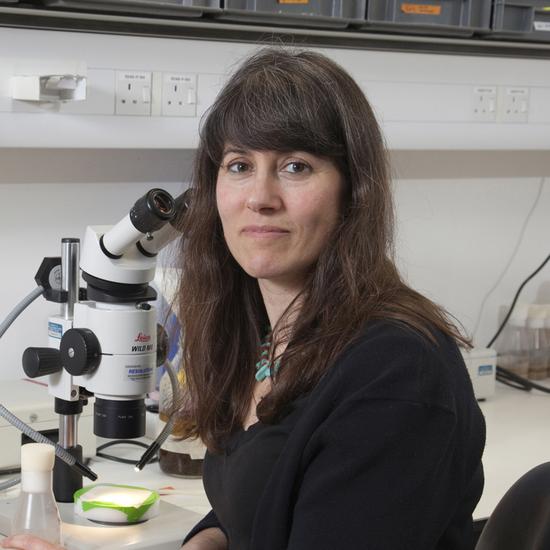Andrea Brand studies nervous system development, identifying the genes that direct the specific behaviours of cells in the brain. These cells, neurons and glia, are produced by multipotent precursors called neural stem cells. Andrea studies the genes that regulate the transition from a neural stem cell to a specialised neuronal or glial cell type. With sufficient knowledge of these networks, it should be possible to manipulate stem cells to proliferate, remain quiescent or differentiate into specialised neurons or glia, with the aim of repairing or regenerating the nervous system after injury or disease.
Early in her career Andrea investigated how genes are turned on and off. She characterised the first transcriptional silencer, a regulatory element that represses rather than enhances gene expression. Andrea originated the GAL4 system to enable genes to be switched on or off in a targeted, cell type-specific pattern in vivo.
Andrea is a Fellow of the Academy of Medical Sciences and Member of EMBO. She has received the Royal Society Rosalind Franklin Award, William Bate Hardy Prize and Hooke Medal.
Subject groups
- Microbiology, immunology and developmental biology
Developmental biology
- Anatomy, physiology and neurosciences
Cellular neuroscience
- Biochemistry and molecular cell biology
Cell biology (incl molecular cell biology)
- Other
Science education at secondary level, Public understanding of science
Awards
Royal Society Rosalind Franklin Award and Lecture
Used her award to organise two lecture series featuring prominent female researchers working in cell and developmental biology, one aimed at school pupils and the other at undergraduates and postgraduates to raise the profile of women in science.

